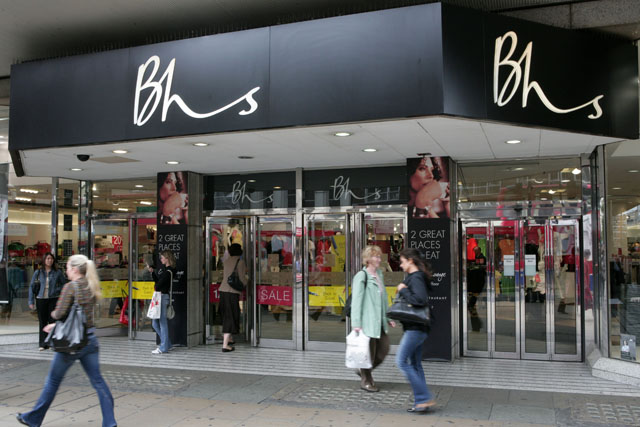Tales of family-owned businesses struggling to pay the rent are common in the modern hostile retail environment. In this instance, however, the family-owned business in question is not the village shop, but Sir Philip Green's Arcadia retail group.
Its profits plunged almost 40%, from £213.2m to £133.1m, in the 12 months to 27 August. Although Green did not single out BHS' performance, he reportedly described it as having 'lost a bit of money' in 2011, on the back of declining sales.
It is understood that the figures are still masking some major weak showings within the group, because Arcadia's youth brands, which include Topshop, Topman and Miss Selfridge, are said to be trading well.
Green has revealed that up to 260 Arcadia-owned stores could be closed in the next three years as their leases run out. While BHS struggles to lure its, traditionally, older customer base through its doors, it occupies huge stores, the loss of which would leave a noticeable gap on high streets.
Green is not one to shirk a challenge, and is considering selling food in 150 BHS stores that have planning consent to do so, in an attempt to turn around its fortunes. But is that enough to revitalise the old-fashioned brand?
We asked Stuart Mitchell, chief executive of retail agency Live & Breathe, and Peter Cross, managing partner of Mary Portas' agency Yellowdoor, which works with brands and retailers including Clarks and Boden.
STUART MITCHELL, chief executive, Live & Breathe
The Leeds branch of BHS is like entering a department-store time warp. The retailer has lost its way. Those managing the business need to understand why people might not want to shop there.
It's become synonymous with C&A and Woolworths - a pair of heritage retailers with brands that were unable to evolve at the pace consumers craved, and so fell victim to a smarter breed of budget retailer.
Customer promotions need a radical retune at BHS. Frequent discounting merely encourages bargain-hunters who buy only when there is a promotion. What about the other weeks of the year?
Savvy retailers give people a reason to shop, be it the range, pricing or quality. BHS has no apparent core rationale.
It must find one pretty quickly.
It needs a greater focus on telling people about the ranges and giving customers what they want. Being a generalist is ambiguous and can lead to missed opportunities with customers.
Revisiting the market is vital. BHS attracts older shoppers who are strapped for cash. It's a shame, however, because the quality of BHS products should stand it in good stead.
Remedy
- Decide on the target customer. Then focus on them and work out the best ways to attract them to stores.
- Invest in a better, more inspiring shopping experience.
- Focus on the quality of the products as a key differentiator from competitors that may have a wider range but can't compete in this area.
- Embrace multichannel. Those who succeed will link online with real estate.
- Play on customer service. Experienced staff add value - BHS has a strong heritage here.
PETER CROSS, managing partner, Yellowdoor
Its 7pm on a Monday evening a month before Christmas, and I'm in BHS on Oxford Street. There's a Christmas shop at the front selling Marmite-branded accessories, £15 giant-size barrels of wine gums, frying pans with 'free tins of beans' and other undesirable stuff.
Warbling away overhead is James Blunt, celebrating that in his mind it's 'always 1973'. Looking around, he's got a point. Despite a refurbishment and a (really dull) new logo, the shop feels trapped in the 70s. There is a lot of black and white 'fixturing', uninspiring signage and photography of soulless models lit by lots of harsh white lighting.
The more appealing home department is hidden away on the first floor, meaning bolder shoppers have to venture through racks of pink nighties and lilac anoraks to get there. Sir Philip Green claimed the recent profit dive was no more than a blip, its first in nine years, brought on by intransigent landlords, unseasonable weather and tough trading conditions - all fair points.
Yet looking round the shop, there has to be more to it. BHS' departure would be a blow more tragic than the loss of Woolies and would leave gaps on our high streets as big as missing front teeth.
Remedy
- Next year could be one of the greatest yet for all things British. Bring back the old name, British Home Stores.
- BHS offers neither value nor values. Today's great-value brands either copy those in the class above them or sell it in a way that still makes us feel clever for making an informed choice.
- Be good at being a 'clever' fashion and home choice, which means being about design as well as price, and do it in a fun and uplifting manner that is grounded in the British way of life.


